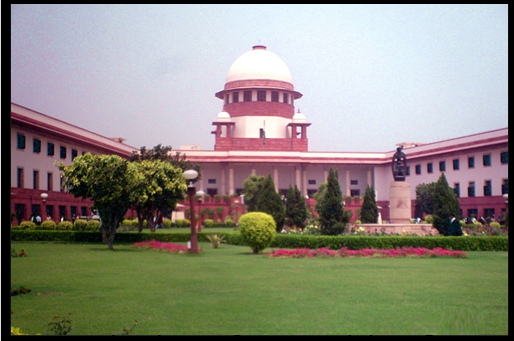“UPHOLDING RIGHTS AGAINST CLIMATE CHANGE: SUPREME COURT’S VERDICT AND IMPLICATIONS”
Syllabus:
- GS-2-Judicial activism in the field of environment
- GS-3 – Environment , Renewable energy
- GS-4 -Case study related to Development vs Environment
Focus :
- Recent Supreme Court judgment recognizes citizens’ right against adverse effects of climate change.The context was Concerns over deaths of Great Indian Bustard due to solar power transmission lines.
- Supreme Court judgments on environmental matters have often significantly altered public discourse and governmental action.
Source-ToI
Background of the Case:
- Decline in Great Indian Bustard population linked to power lines in Rajasthan and Gujarat.
- Environmentalists petitioned for shifting overhead lines underground in 2019.
- Debate between environmentalists and power companies supported by MNRE.
Supreme Court’s Decision:
- Expert committee tasked with determining which transmission lines should go underground.
- Court emphasizes that underground electrification could hinder India’s solar electrification goals.
ABOUT GIB :
|
Judgment on Human Rights and Climate Change:
- Indian government’s steps to address climate change through legislation and programs and absence of single legislation related to climate change in India.
- Court asserts citizens’ rights against adverse effects of climate change under Articles 14 and 21 of the Constitution.
International Precedents:
- Growing convergence between international human rights law and climate change.
- Reference to human rights in the preamble of the Paris Agreement.
Implications of the Ruling:
- Supreme Court judgments on environmental matters influence public discourse and governmental action.
- Previous judgments like C. Mehta versus Union of India and Godavarman Thirumulpad cases have shaped environmental policies.
- Ruling underscores the necessity of expanding electricity production from solar energy sources.
- Debate over India’s reliance on coal plants and fossil fuels amidst global efforts to combat climate change.
Conclusion:
- Supreme Court’s verdict reaffirms citizens’ rights against adverse impacts of climate change.
- Implications of the ruling on India’s energy policies and international climate commitments.
- Importance of balancing environmental protection with energy needs for sustainable development.
Source:The Hindu
Mains Practice Question :
GS-2
- Discuss the recent Supreme Court judgment recognizing citizens’ rights against the adverse effects of climate change, highlighting its implications on India’s energy policies and international commitments to combat climate change.(250 words)
GS-4
- You are a senior environmental policy advisor working for the Ministry of Environment, Forest and Climate Change. A recent Supreme Court judgment has recognized citizens’ rights against the adverse effects of climate change, particularly in the context of mitigating harm to endangered species like the Great Indian Bustard.
- In light of this ruling, your ministry is tasked with developing guidelines for balancing environmental protection with the government’s ambitious renewable energy targets. However, there is significant pressure from various stakeholders, including private and public power companies, to prioritize cost-effective solutions such as overhead transmission lines for solar power projects, despite the known risks to wildlife.
- As an ethics advisor, you are faced with the dilemma of balancing the urgent need to expand renewable energy capacity to meet climate goals with the responsibility to protect vulnerable ecosystems and species.
- Discuss the ethical considerations and decision-making process you would undertake to develop policies that uphold citizens’ rights while promoting sustainable development. How would you navigate the competing interests of stakeholders and ensure ethical leadership in addressing this complex environmental challenge?”




